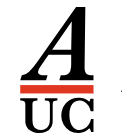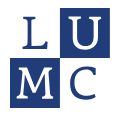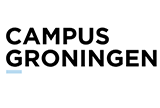Introduction
The Leiden University Medical Center (LUMC) is a leading modern university medical center in the Netherlands that integrates research, education and patient care. It is also the medical department of Leiden University and has a high reputation and important position in the medical field.
Overview
Scale and facilities: The hospital has clinical departments of all medical specialties and is a tertiary referral center in the northern part of South Holland. It has special departments such as ophthalmology, neurosurgery, cardiothoracic surgery, neonatal and pediatric surgery and intensive care, pediatric oncology, orthopedics, biliary surgery, rheumatology, etc. In addition, it is equipped with advanced medical equipment and a complete infrastructure to provide patients with high-quality medical services.
Staff composition: It has a large number of professional medical staff, researchers and teachers who have rich experience and expertise in their respective fields and jointly support the development and operation of the medical center.
History and establishment time
Its history can be traced back to the 18th century, when professors taught at the bedside in the first teaching hospital of Caecilia Gasthuis in Leiden. In 1873, the first university hospital was built and opened on Steenstraat. Due to development needs, a new hospital was built on Rijnsburgerweg in the 1920s, and was replaced by the current LUMC building in the 1980s and 1990s. In 1996, the hospital and the medical department of Leiden University merged to form the Leiden University Medical Center.
School Strength
Faculty: It brings together a group of experts and scholars with profound attainments in various fields of medicine. They not only have rich experience in teaching and can provide students with professional guidance and high-quality education, but also actively explore in the field of scientific research, have achieved many important research results, and promoted the continuous development of medical science.
Scientific Research Results: LUMC's research covers a wide range of fields from pure basic medical research to applied clinical research, and has achieved remarkable results in the exploration of the causes of diseases, the improvement of diagnostic methods, the formulation of preventive measures, and the development of effective treatment plans. For example, it has strong research capabilities in immunology, drug discovery and genomics, and its scientific research results have important influence internationally, making positive contributions to the progress of global medicine.
International cooperation: Actively carry out extensive cooperation and exchanges with scientific research institutions, universities and enterprises around the world. By participating in international scientific research projects, academic exchange activities, and jointly training students, it continuously enhances its international influence and competitiveness, and promotes the global sharing and exchange of medical knowledge and technology.
Nature of the institution
LUMC is a public medical center affiliated to Leiden University.
Educational philosophy
Cultivate innovative talents: focus on cultivating students' innovative ability and lifelong learning awareness, encourage students to actively explore in learning and practice, and have the courage to try new methods and ideas, cultivate reserve forces for future medical innovation and development, so that students can maintain competitiveness in the ever-changing medical field.
Emphasis on the combination of practice and theory: education is regarded as the common responsibility of students and professors, and attaches great importance to cultivating students' critical scientific attitude and curiosity, so that students can apply medical theoretical knowledge to actual clinical practice and scientific research work while firmly mastering it, and improve their ability to solve practical problems.
Attach importance to the cultivation of comprehensive qualities: It is believed that enjoying learning and student life are equally important, and pay attention to the comprehensive development of students. It not only focuses on the improvement of students' professional skills, but also attaches importance to cultivating students' comprehensive qualities such as communication skills, teamwork spirit, and humanistic care literacy, so that students can become medical professionals with good professional ethics and social responsibility.
Key laboratories and disciplines
Key laboratories: It has multiple advanced laboratories, which provide a good platform for medical research. For example, laboratories in the fields of biomedical imaging, vascular and regenerative medicine, immunity, infection and tolerance are equipped with high-end experimental equipment and technology, and are able to carry out cutting-edge research.
Advantageous disciplines: Immunology, drug discovery, genomics and other disciplines are at the international leading level, and they also have strong strength and a deep research foundation in the fields of cardiovascular disease, oncology, neuroscience, genetics and other disciplines, attracting many outstanding scientific researchers and students at home and abroad.
Department
As the medical department of Leiden University, it covers multiple related departments such as medicine, biomedical sciences, clinical technology, and pharmacy, providing students with a comprehensive medical education curriculum system from undergraduate to doctoral.
Ranking
Ranked 66th in the 2022 World University Clinical and Health Rankings and 71st in the 2022 QS Rankings.
Expenses
Specific fees vary depending on different majors, degree types and courses. Taking the biopharmaceutical science major as an example, the master's application requires students to have a bachelor's degree in a related major and need to complete at least 150 Courses with credits, as well as basic research training in the field of life sciences.
Campus
Main campus: Located in Leiden, the Netherlands, the campus has modern buildings and complete facilities. The various departments, laboratories, and teaching buildings are reasonably distributed and connected by overpasses and tunnels, which facilitates the travel of teachers and students between different areas, reflecting the close connection between the core tasks of the medical center.
The Hague Campus: In 2016, the Leiden University Medical Center established a branch in The Hague to carry out research, teaching, and general practitioner training programs, further expanding its coverage of education and scientific research.
-

Delft University of Technology
-

Amsterdam University College
-

University of Amsterdam
-

TIAS School for Business and Society
-

Erasmus University Rotterdam
-

Leiden University Medical Center
-

University Medical Center Groningen
-

Saxion University of Applied Sciences
-

Academic Hospital Maastricht
-

Tilburg University
-

Mesoamerican University
-

Istmo University
-

Mariano Galvez University of Guatemala
-

Regional University of Guatemala
-

Galileo University
-

Francisco Marroquín University
-

Rafael Landívar University
-

University of the Valley of Guatemala
-

University of San Carlos of Guatemala
-

Technological Institute of Tlaxcala Plateau
-

Golfo University
-

Technological University of South Sonora
-

Technological University of Huejotzingo
-

Tizimín Institute of Technology
-

Chilpancingo Institute of Technology
